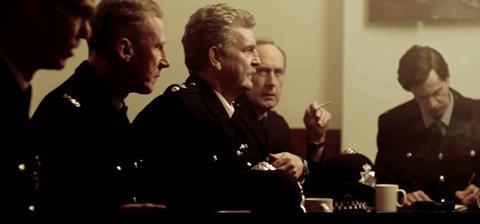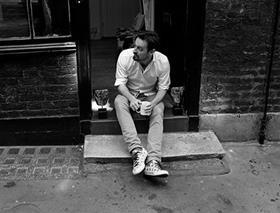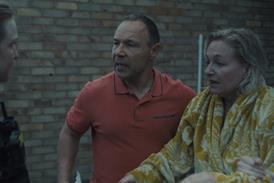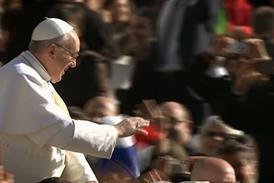The industry’s refusal to take a chance on people is making docs look samey - and worse, it’s driving talent out
After 24 years I’ve decided it’s time to step away from the edit suite and call time on my career as a film editor. In that time, I’ve covered pretty much every genre of documentary, from formatted daytime to theatrical features and all the fun stuff in between. It’s a craft I still love and will continue to champion, but I do believe there need to be fundamental changes in the industry –otherwise we will continue to lose expertise in key roles.
The big issue for many editors is around progression. A chance to grow and learn new skills.
From a very personal perspective, but also anecdotally through others, I know that my working-class background has played a major part in blocking any possible growth beyond being at the coalface of the edit. My forays into writing and directing have always been kept limited to firefighting or have gone uncredited.
On several occasions over the last two decades, I’ve taken projects to commissioners and production companies to have them rejected on the grounds of it not being the right time or not right for the channel, only for those stories to find their way to screen within a year with a seemingly more palatable director. These aren’t singular events, but a pattern encountered across several years of working in the industry.

Looking back through my CV, only two directors I’ve worked with in the past twenty years were not privately educated. Class just isn’t discussed as an issue, and that’s largely because it isn’t seen as an issue by the people who run the show. I don’t believe there’s been any real progress made in my time as an editor.
So much talent is being lost or ignored. It’s much easier and beneficial to the production companies, channels and streamers to keep tried and trusted editors in their box, available to fix and finish their projects when they inevitably run into trouble.
Last year at Sheffield Doc Fest, I chaired a discussion for the Grierson Trust around the perceived skills gap within editing. I didn’t believe there is a skills gap and still don’t. It’s an opportunities gap. There’s an amazing community of young and emerging documentary editors out there who are simply not being given the chances to work on high-end productions.
“I’ve heard stories in the last 12 months of projects being put on hold because the ‘right’ editors weren’t available. It’s complete nonsense”
Broadcasters and streamers seem unwilling to risk productions falling at the edit stage and therefore continue to demand the tried and tested handful of editors whose names you see time and again. The result is that everything starts to look and feel the same, as there’s no new creative voices in the cutting rooms. I’ve heard stories in the last 12 months of projects being put on hold because the ‘right’ editors weren’t available. It’s complete nonsense.
One possible solution would be for streamers and channels to employ senior editors to oversee several projects through post. These editing showrunners would then give the comfort of experience to the productions and allow space for the emerging talent to get the experience needed on the bigger projects whilst having a mentor in place during the edit.
I believe it’s a positive way the industry can truly move forward on its promise of getting fresh voices into the edit suite and prevent the wealth of story experience drifting away from the industry.
I’ve seen first-hand the importance of finding different voices for the edit suites. Those alternate frames of reference are so desperately needed to keep pushing how we tell stories and to keep reminding us of what is important.
Helping new talent through this industry has brought some of the best moments in my career and something I’m keen to do more of.

So, with that in mind, I’m continuing my work with the NFTS as head of editing, supporting new editing talent through my role as a Grierson trustee and consulting on three films across the rest of the year. But I don’t have a seat at the top table and not many folk like me do, so real change has to come from those who can really influence how things are done and who gets to do it.
- Andy R. Worboys is an editor and trustee of the Grierson Trust
































4 Readers' comments